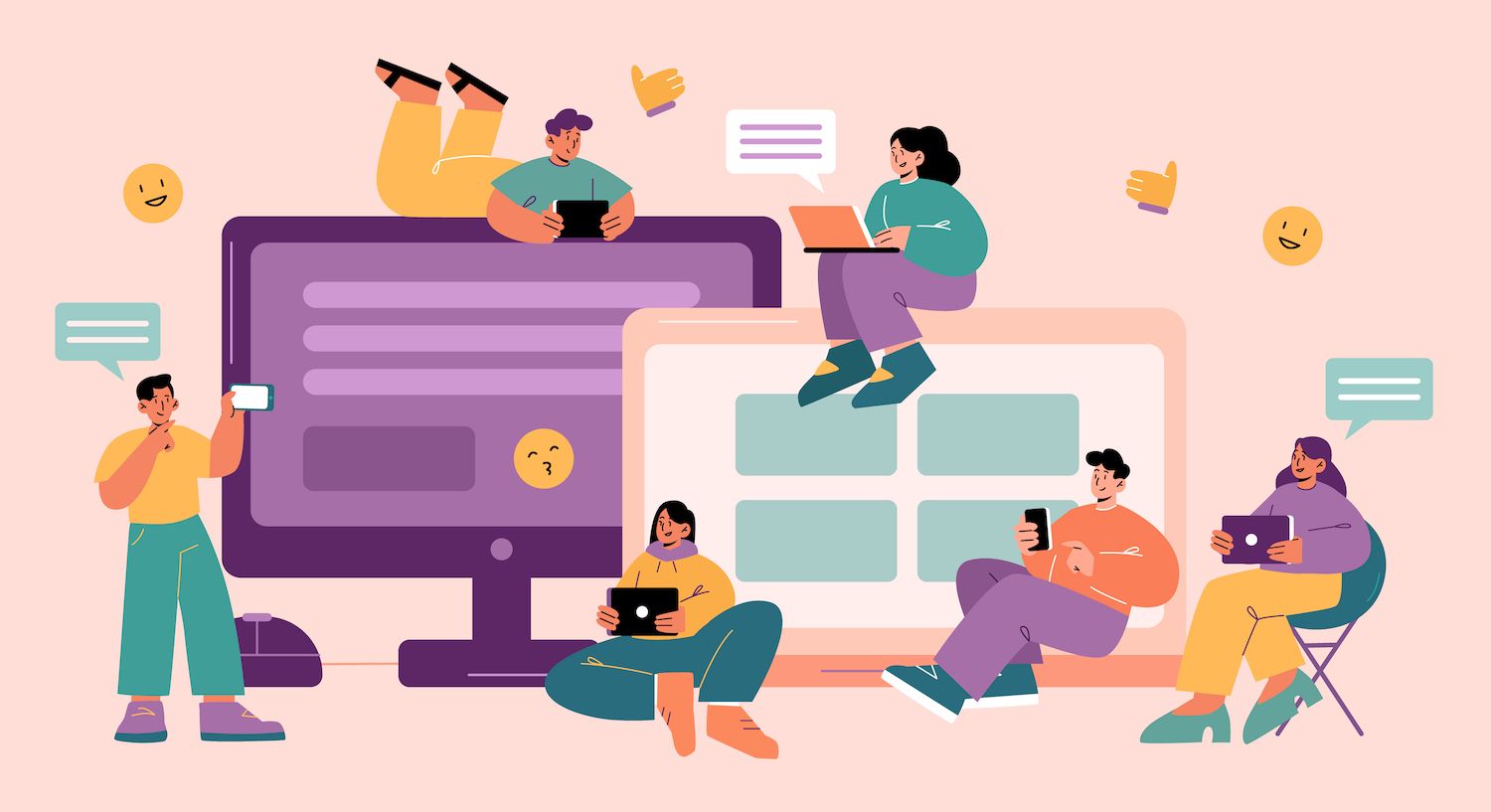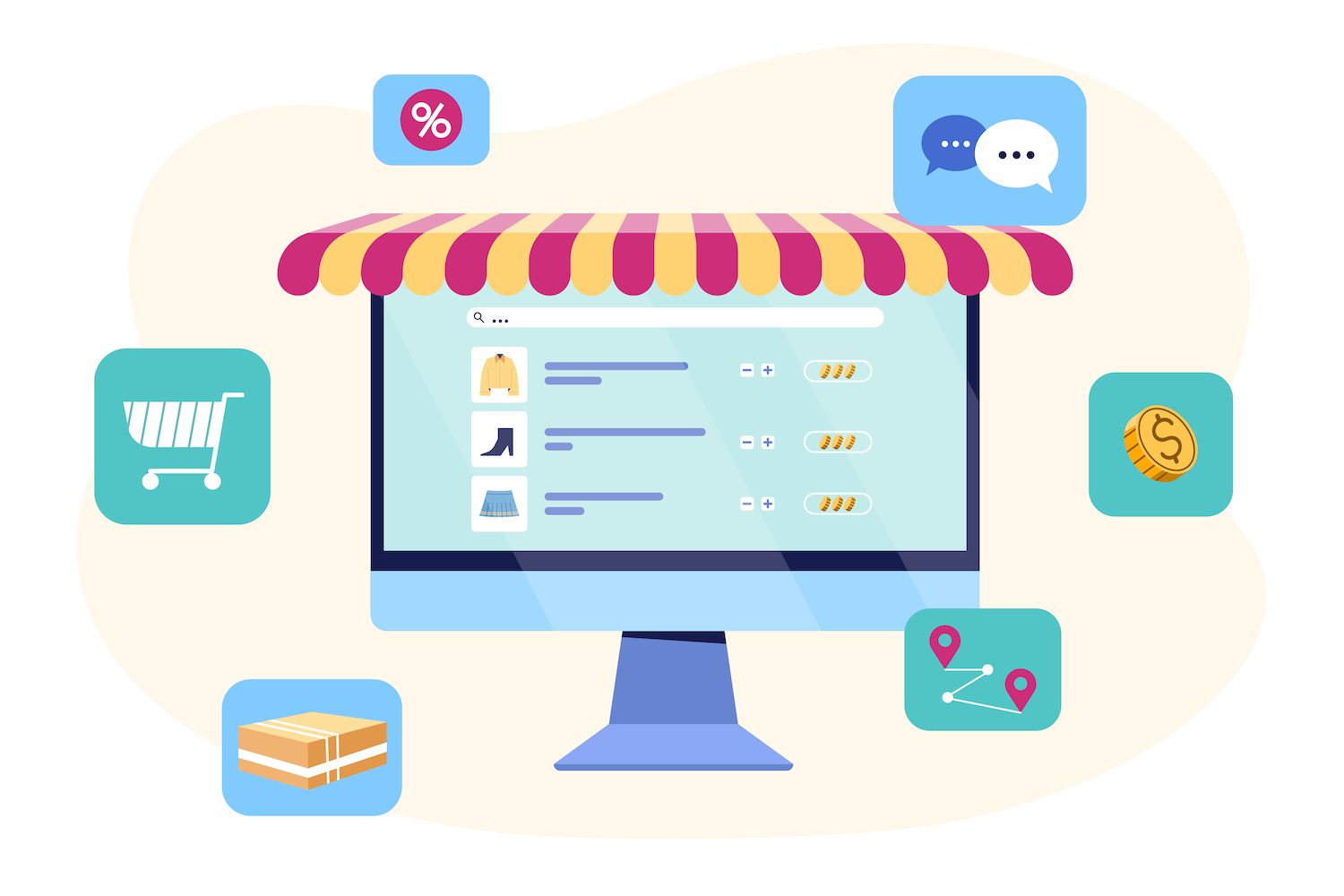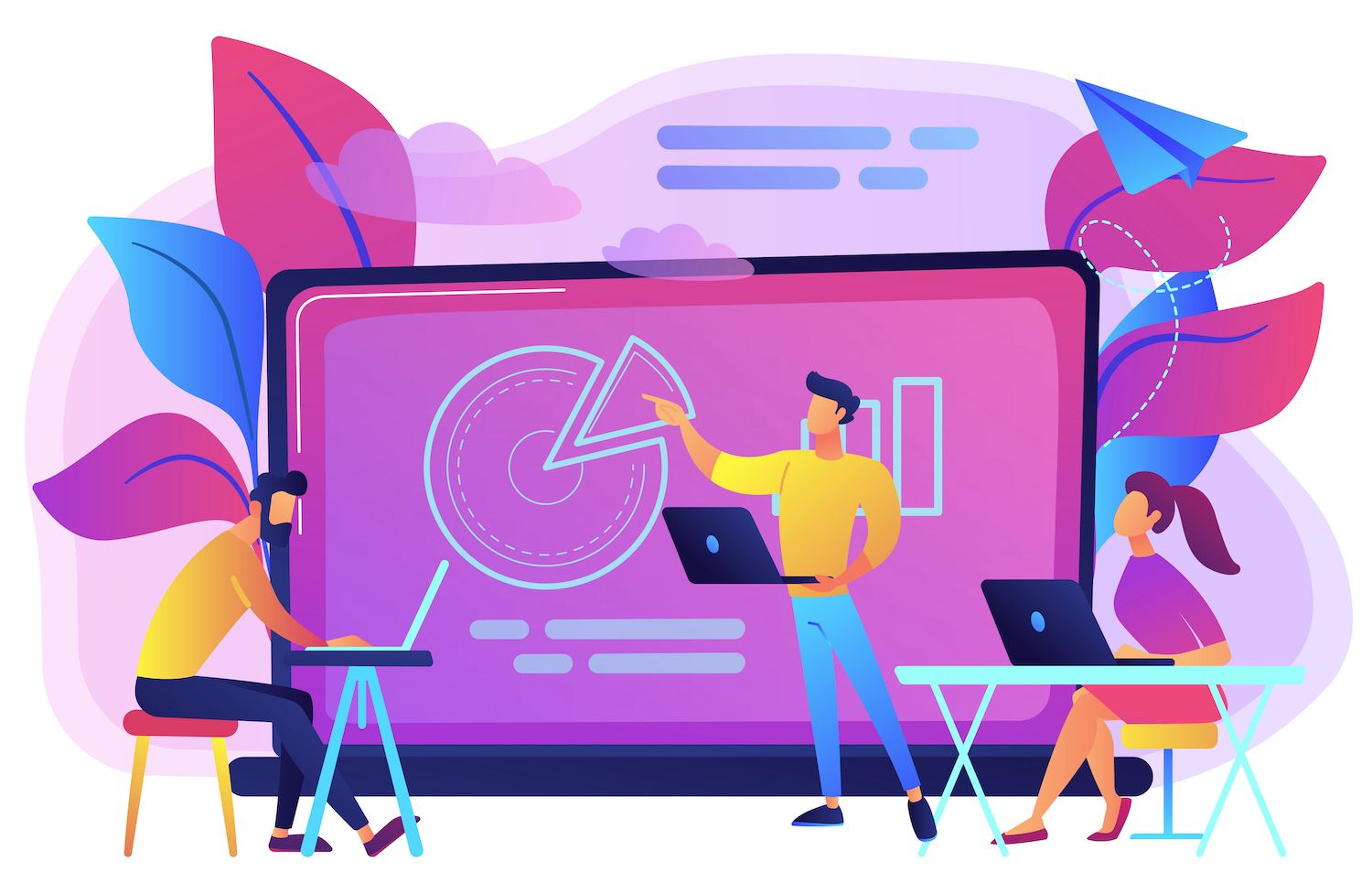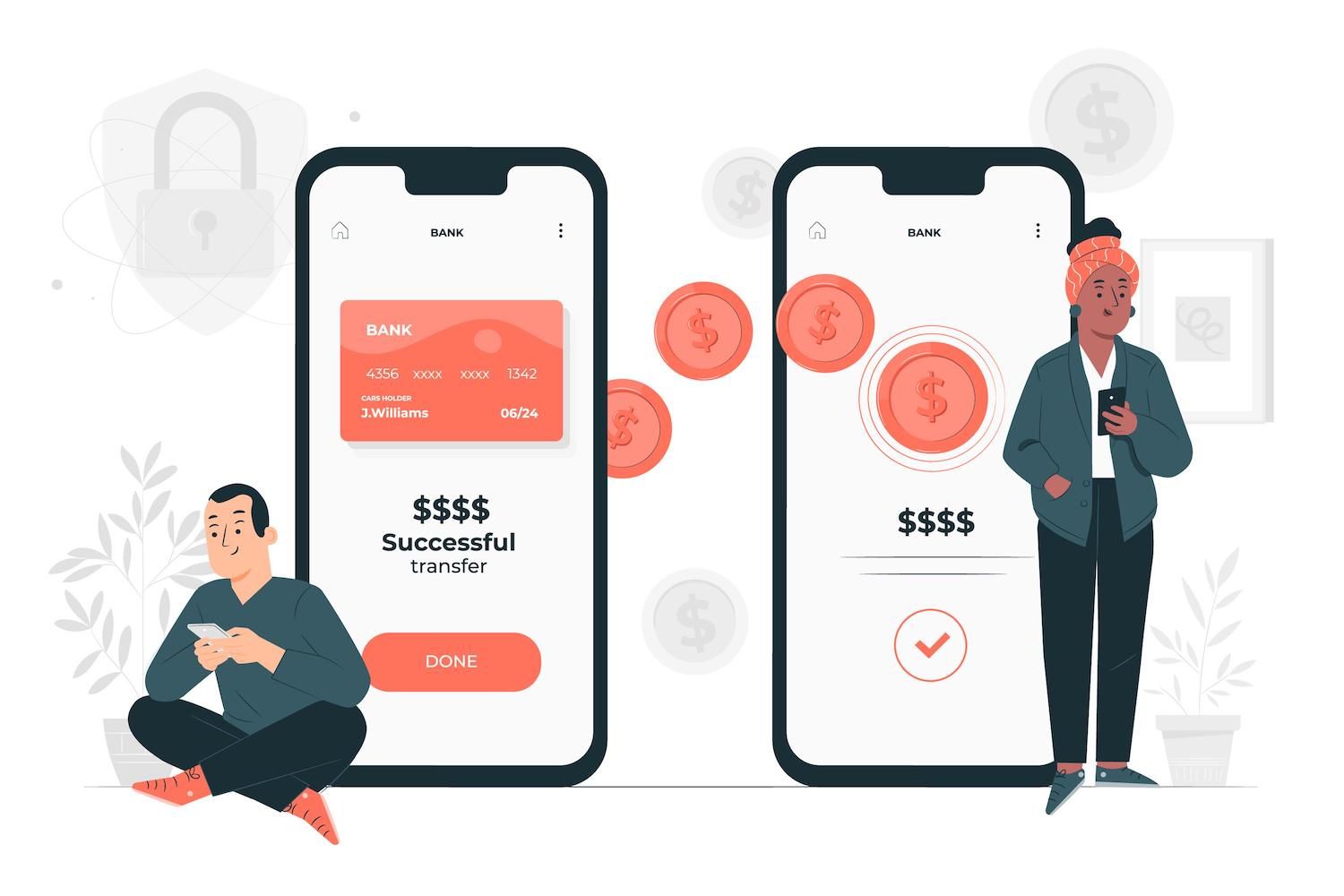Monetize. Monetization. The Mechanism and Examples (2023) |
When Luis von Ahn famously developed CAPTCHA, you know the tiny words you have to write to prove that you're human-he came up with one of the most brilliant ways to monetize. The application would pick a few random words from the archives of the New York Times, and the user would type in what they saw. It was not known that they contributed to digitizing newspapers and old books, and those companies paid for the service.
It was an innovative way to add a second revenue stream to the secure digital data.
In this article, we'll introduce you to the words monetize and monetization. We'll clarify what they mean, then walk you through the different forms of monetization, and the best way to build a monetization strategy for your brand.

What exactly is business monetization?
The process that generates revenue from items or activities that do not currently make you money. It is generally the method we use to look at how individuals or companies that produce software or content are financially compensated for their effort. For any service, product or program, there are a number of different ways to monetize according to how users make use of the product or service.
Sometimes, monetization is a part of digital creation-for example, a content gate might make people buy a product direct. This is what happens when Netflix or the New York Times or Netflix requires subscriptions.

On the other hand sometimes, monetization may require adding extrinsic material. For a typical newspaper advertising format, advertisements consumed additional space, and the paper had to add pages. However, companies would pay to place advertisements in areas where people were looking for them and gave newspapers sufficient income to continue their work of reporting the news. Television works in the same way. So do display ads or YouTube advertisements.
Online monetization
If we're talking about monetization now, we're usually discussing the various ways users can make money online, such as an online YouTube Channel, a TikTok following, or a blog or web site. The result is common terms like "Are you monetized?" or "I need to monetize." Of course, we've heard the story about an influencer or blogger that earns $50,000 per month.
There are many ways of making money from on the internet. As an example, a blogger may monetize his website through display ads or affiliate products as well as a course that they sell. Social media companies monetize their customers' personal data, providing users with a complimentary experience but charging companies to display advertisements in front of users.

There are many ways to make money, monetization demands creative thinking about the ways to monetize things. That's what Luis Ahn came up with in CAPTCHA. There are monetization solutions all around us. For example, the stock market let's investors monetize ownership within corporations, however the derivatives market adds even an additional way to monetize the stock market with the use of options and calls. (If you've watched the film The Big Short, it refers to these as "side bets" .")
While you consider your model of monetization and method, think of ways to be innovative in approaching the problem and finding a monetization method which is effective for you.
Monetize is literally "to turn something into money." When you've got something that you've developed, such as digital goods, content such as apps or software, to monetize is turning that item into money. But, of course, you're not doing this literally. The majority of the time, you're figuring out how to generate money from the use of your thing. You're turning uses, views, subscriptions, members, etc. into money.

What exactly is a model of monetization?
A monetization model is the method or methods that you can earn money by selling a service or product invention, creative work intellectual property or perhaps your personal brand. There could be different components to your monetization model-all are required to function in tandem to generate the income that you require.
For example, if you were creating an app, you could choose to incorporate in-app purchase as well as charge users for downloads. You could also add advertisements or any of the previously mentioned. In the event that you developed software, you can select from a variety of monetization options. It is possible to "white label" it, and sell the software to clients for use under their own branding. You can sell access to it under your brand, or create free access with a "freemium" or upsell.
A monetization strategy is the process by which a single (or multiple) streams of revenue come together to make up an entire brand's revenue.

Types of the monetization
These are just a few of the most popular methods of monetization. But they're not the only ways to make money. Ultimately, there are innovative monetization strategies being developed constantly. Note that these are also not mutually exclusive. A lot of brands utilize several of them (and there's a cross-over ).
Member Mmonetization
Growth driven by members is among the best ways to monetize. The next generation of companies that are growing fast are likely to be those that can convert customers, users as well as subscribers to members. They'll be able to do this on a massive an incredibly large scale.
Membership-led monetization is simply as easy as establishing an annual membership fee for your community. But doing this creates valuable regular revenue. Additionally, your members create content, and then share with other members that they are part of your community, allowing it to grow on autopilot.

Here are some examples of the ways we've seen members-led marketing work:
- An entrepreneurship org. It launched a brand-new app for 5,000 members and made over $30k in just 2 1/2 weeks.
- The health-focused launch of 100 members with high-tickets also added $40,000 to the ARR.
- Author and speaker announced a promotion for four weeks in their community of members and earned an increase of $30,000 in sales.
- A podcaster and author offered 5,000 tickets to the $997 course within 10 days to existing members.
- A community has launched an add-on 13-week course that brought in an additional $100k of revenues in only two months.
When you have an item that is based on membership, you'll find that you often earn money off both your memberships and any other things your members buy-a business model McKinsey calls the Flywheel for communities .

Digital Subscriptions
Monetizations with subscriptions works a lot like a member model. But your customers don't add any benefit. Instead, they use content or software which you've created or licensed. It's a popular model for companies that make software since companies such as Microsoft and Dropbox have made subscriptions their bread and butter.
And it works for media too. Netflix as well as Disney+ have built empires with subscription services. Subscriptions also saved The New York Times; in 2020, there were 8 million digital and print subscribers.

Freemium
Freemium monetization is one of the models which is very popular among software firms, as it allows customers to test a product for free before signing up. In this case, the monetization structure takes charge of a free trial, thus reducing the need for features such as "money back assurances" because the purchase isn't made up front. It also allows members, users, and so on effortlessly upgrade beyond the paywall after a specific duration or get more features.
Content monetization
There are many methods to make money from content such as digital subscriptions, memberships and even digital ones. But for content creators there are endless options. Here are some of the typical ones:
- Affiliate marketing: When you talk about items on a site or feed for social media, when someone clicks on a brand-approved tracking link, you may earn commissions. Many blogs and websites monetize with affiliates.
- Advertising: Monetizing through advertisements is another proven and tested monetization strategy for content-heavy brands, including TV channels, websites to applications (more on this in an instant). Ads can be paid per advertisement, or per visit (usually known as RPM=revenue per Mille ).
- Sponsorships: The term "sponsored content" is usually refers to the blog posts that were sponsored. More and more sponsorships are created by influencers.

Social media monetization
Usually we see social media monetization being the way that people monetize their social media platforms. And most social media creators monetize with different options already on this list: advertising, affiliate marketing, and sponsored content.
However, there's also the matter about how social media platforms make money- and they're also very creative. Below are two instances of how social media giants make money:
- Meta: With its flagship brands like Facebook as well as Instagram, Meta makes money by selling attention-and with 2 billion active users each day, it's got lots to offer. Meta gathers data from users and offers companies the opportunity to place the appropriate adverts to their customers using highly-targeted data on demographics. This led to a staggering the amount of $32 Billion in the final quarter of 2022. Meta's data gathering is so effective that it has been the target of scandals (think the efforts of Cambridge Analytica to influence the outcome of elections).
- LinkedIn: LinkedIn is much smaller than Meta which has an average of 141 million users per day. However, it has its own unique revenue model for monetization which fits with its strengths as an online platform. As a career and networking site that sells premium plans to job-seekers (giving an edge in job applications), and then provide unique plans to recruiters and employers at a more expensive price. It lets each type of user have what they require on the platform. However, it also sells advertising. LinkedIn has generated over $13 billion in revenue by 2022.
When you examine all the social media sites there's something to be able of. Nearly none of them cost users for access to the site in the first place. The goal of these sites is to garner an enormous amount of engagement and interest, or to convert users to premium plans or-more typical- to sell their users' attention to advertisers.

App monetization
App monetization can be a whole world in itself, and we've created a tutorial on it. But let's just say that there are a variety of methods to make money from apps, such as subscriptions, memberships and advertisements. But what's unique for apps is the category of purchase in-app.
These are the 13 ways that mobile apps could be made monetizable in the future, so be sure to check out our guide to mobile app monetization to take the full details of each.
- Freemium
- Ads + Premium
- Advertisement Only
- Ads + In-App Purchases
- Subscriptions
- Memberships
- Courses
- Events
- Products (physical and digital)
- Single-time buy
- Services
- Selling user data
- Crowdfunding

Monetization based on product
Sometimes, the best monetization model is a product. This could be digital or a product such as a major online course. For example, we have mentioned that a podcaster and writer on Mighty has sold 5,000 tickets to a $997 course in 10 days. That's a fantastic way to monetize digital products.
But selling physical goods is a tried and proven monetization model too, and there are some truly cool brands who have grasped how to turn digital buzz into real-world success for their products.

Take a look at Peloton, who created a physically-based bike that connects you into exercise routines and other fitness buffs with real-time updates. Additionally, Peleton became a teenager in the midst of the epidemic, and people were looking for ways to get fit. Celebrities have also launched physical products and use their names to market them. This is similar to Ryan Reynolds' Aviation Gin brand, which he sold recently for $600 million.
The incorporation of services with internet-based attention is just starting to take off, and we'll see a lot more in the coming years.
Licensing
This is a model of monetization that's under-appreciated, but for those with any kind of intellectual property rights, licensing may be a fantastic method of monetizing. Essentially, licensing means you own a certain method or design and license others to use it. When you see anyone selling "Trademarked X method to X" You're likely considering a licensing model.
As an example, a lot of experts will construct their brand around topics like Op-eds, TED Talks and other TED Talks However, they may grant permission to use their ideas to companies.

Consulting and services
It's similar to licensing, however those who develop expertise in their online content may frequently sell the use of the content. In the case of LinkedIn, for instance, lots of the creators on LinkedIn and YouTube that share their expertise are able to be hired by individuals as well as companies to utilize the content in a direct way. If you had an YouTube channel specifically focused on helping entrepreneurs build their business there is a good chance that people might be interested in hiring your services as a coach. This is why services and consulting are often a great business model for monetization.
Data
Another monetization strategy is to monetize data. In this example, a platform collects data about its users, and then sells this data to third-party advertisers. This is the norm for social media companies (above) however, these companies aren't the only ones collecting and selling users' data.
In pretty much every industry including health care, to finance, companies are collecting and monetizing user data. Although selling user data is a monetization model employed by lots of tech companies but it's not one many smaller creators and brands use-for good reason. It's complicated, difficult, must be carried out on an extensive scale as well as having a lot of legal implications.

Which monetization strategy is best?
Each monetization model has pros and cons. Models that are free let customers try a product or service before charging and help in selling more easily. Charges upfront require longer sales efforts, however it can result an increase in cash flow earlier in the process. The subscription model can bring an increase in revenues month after month, however it requires continuous client service. In addition, customers must be loyal enough to ensure to realize the real value of regular income.
There are numerous ways to monetize any creation such as a product or service, especially within the digital realm, so selecting a model of monetization which allows you to balance accessibility to users, growth in user numbers, as well as your own objectives is really essential.

Monetization model examples
- Vikrim creates the first internet-based community in the year 2000. He chooses to set a single fee up in the beginning that grants an annual subscription and includes everything under that.
- Ali is the creator of a paid monthly newsletter that includes advice and offers that she mails out every month.
- Charles can be described as an influencer, and offers social tokens to allow people who want to gain access.
- James creates an app that is free to download with the purchase of in-app items.
- Jen is an influential writer and thought leader who monetizes her work through book sales and speaking.
How do you develop a monetization strategy
When you decide to make money from it here are some suggestions for establishing your strategy:
- Understand your strengths: A lot marketing efforts don't succeed because people don't understand the strengths of their brand. Let's take an example: you have a small number of loyal members. Advertisements aren't necessarily the most effective method of monetizing, as they require volume. The product you are targeting could work. On the other hand, if you had a website with no clear subject matter and a large number of visitors, ads might seem more sensible. The product won't be successful without a clearly defined market. Choose your strengths and choose the best model for your business.
- Find out what your members want In the event that you are thinking of making a product or a service to monetize, you can request your members determine what they want from your company. In an online community the process is as easy as asking a question.
- Make sure it fits the target market: Many monetization efforts are unsuccessful because of misunderstanding their customers. As an example, there's a case that a blogger gave guidance to millennials who were unemployed who decided to launch a product that was expensive. It failed miserably. The audience were enthusiastic, but didn't have any money (remember they weren't employed! )
- Align your tech: Monetization-especially done online-usually takes some sort of tech solution. If you're planning to make a profit from an online community, it could be as simple as switching on a membership plan or bundle. But each monetization method needs some preparation. Are you planning to self-publish your ebook? You'll need to understand formatting, cover design, and KDP. KDP platform (or employ someone who knows). Want to put ads on your site? You'll need to get into an advertising network such as Mediavine or Ezoic and then set it up.
- Understand the business side If you are doing business online, earning money is something the IRS holds a strong opinion on. You must be aware of what you need to do to report the earnings. Visit your local small business center might be in order-they can usually provide the help you need.
- Learn, experiment to learn Try different monetizations: The first one you try might not be the best one. Do not be scared to test different things (and allow things to go) until you discover the best solution for your needs as well as your target audience.

Conclusion
While you search for the right monetization model, pay attention to the things that work for your brand and your members. Don't force the process. Monetization needs to be done cautiously, so that you don't risk your loyal customers or ruining the experience for users of the product.
If you want a great method to create a community-driven growth business, come build on Mighty! It is possible to make money through community, courses, content, and live events. It is also possible to try it free during 14 days!
